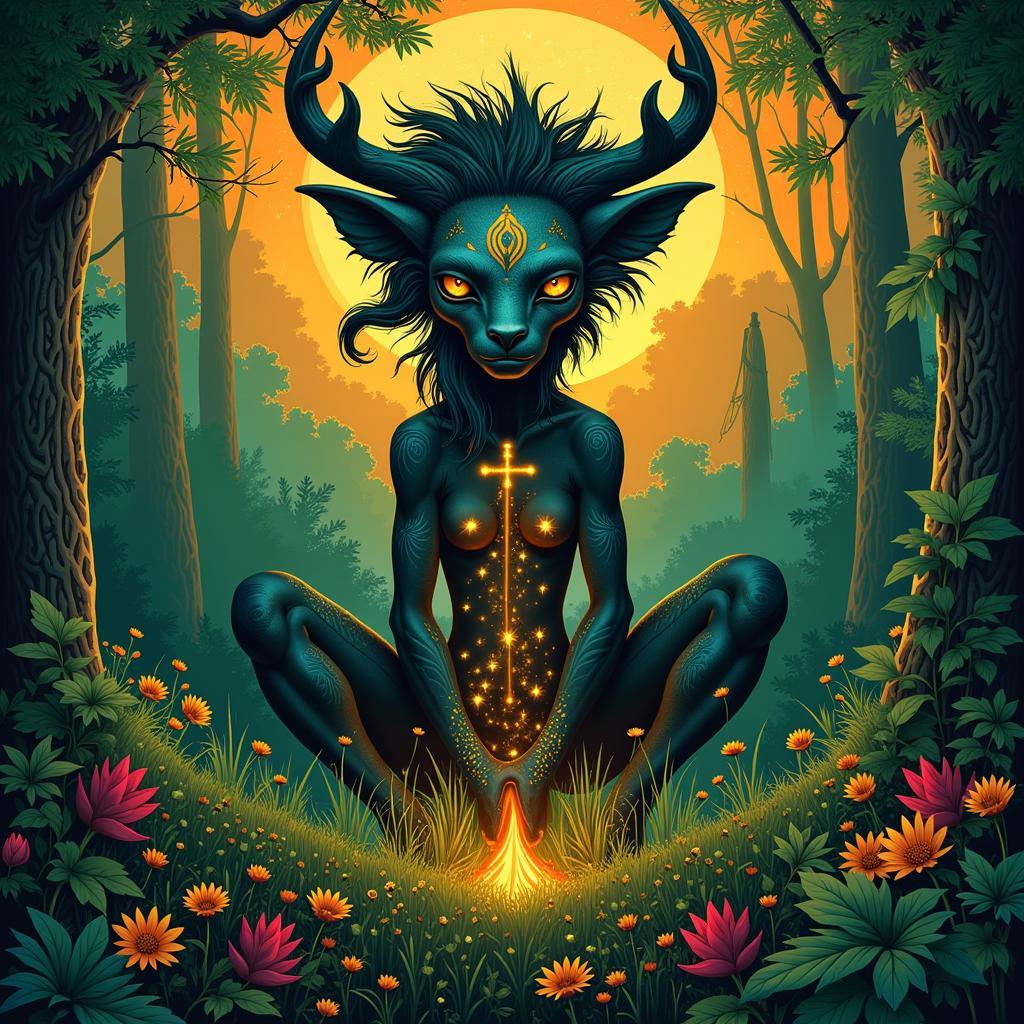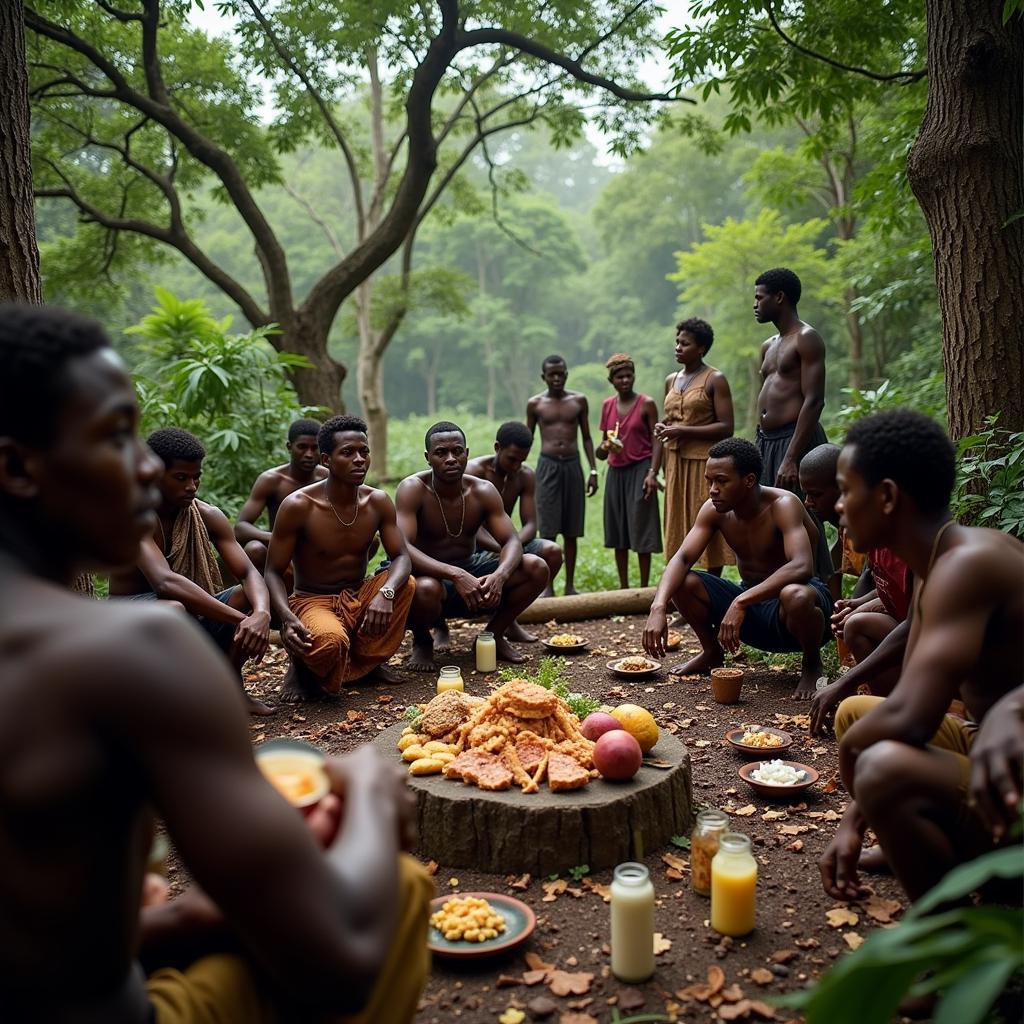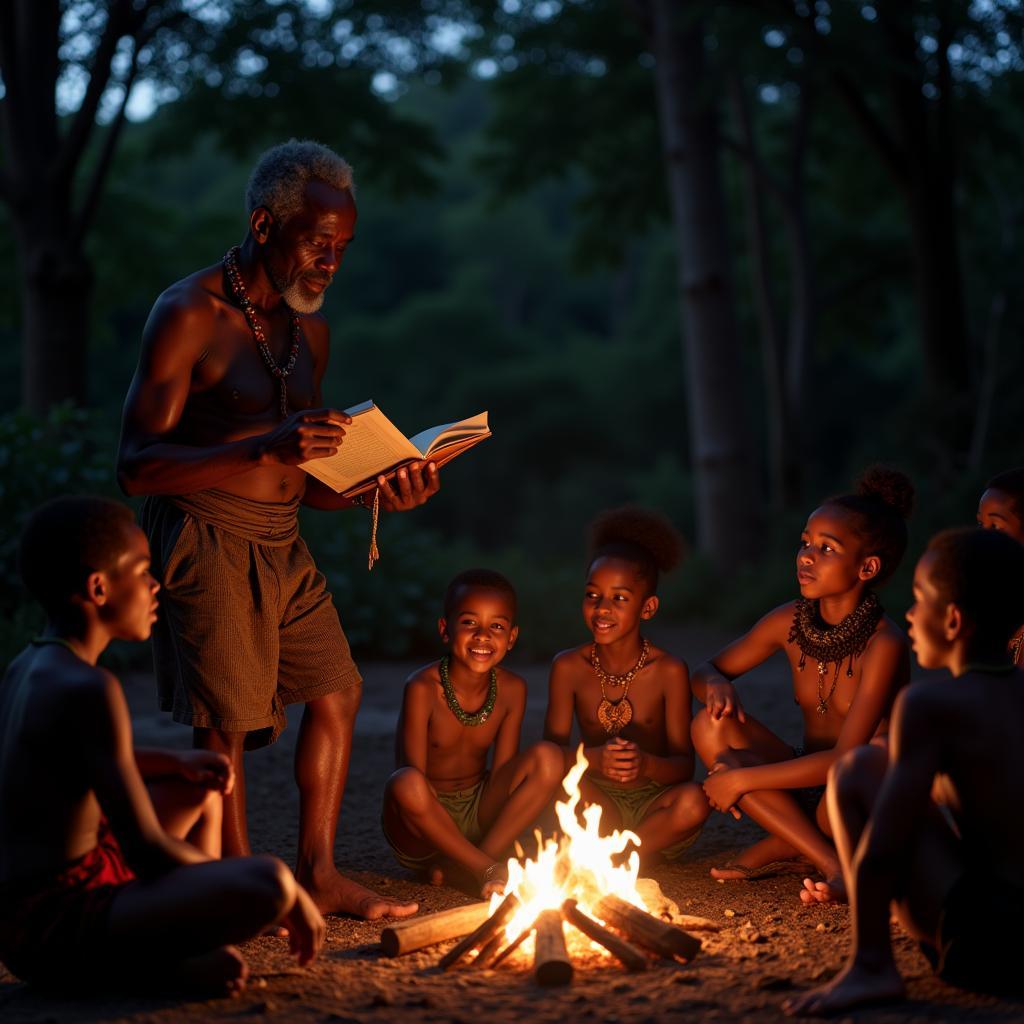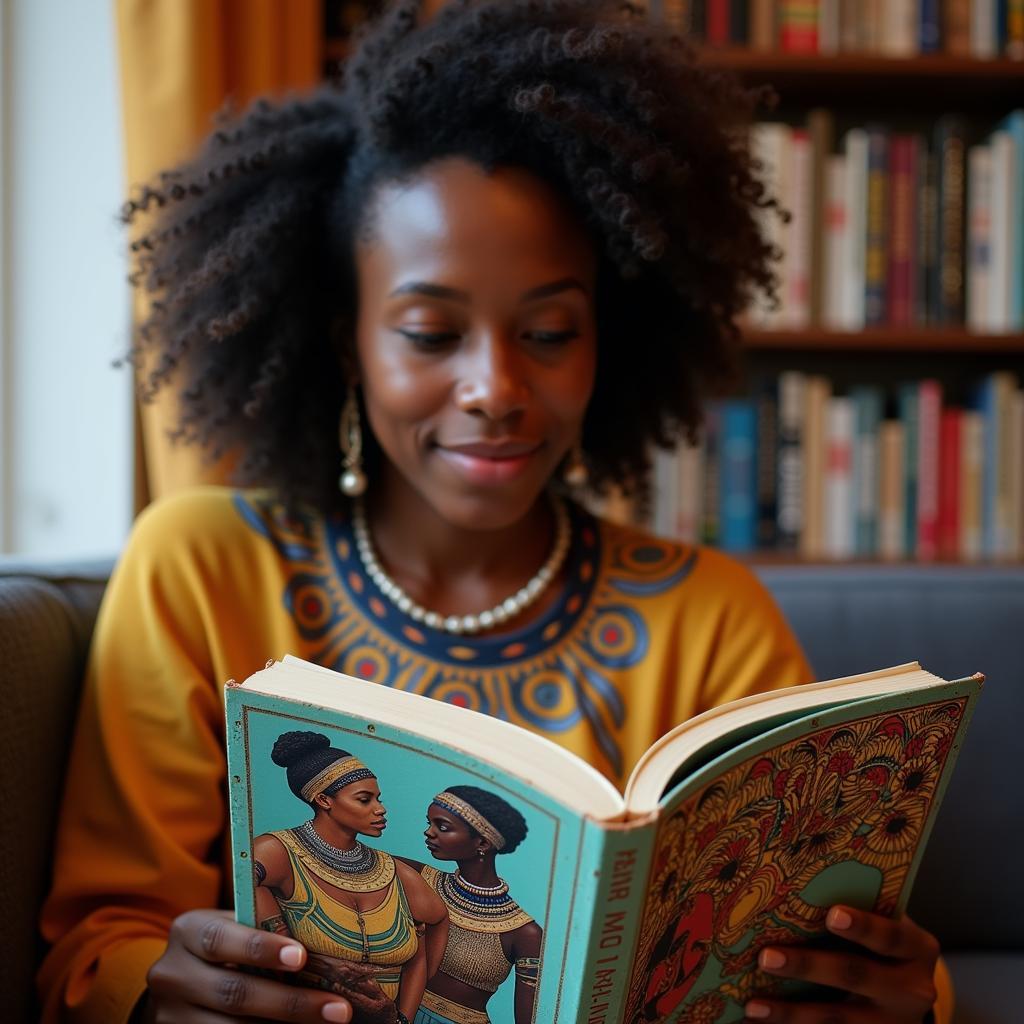Unveiling the Mystery of African Forest Spirits
Deep within the lush rainforests and ancient woodlands of Africa dwells a vibrant world unseen by most. It’s a world where the natural and supernatural intertwine, where ancestral wisdom echoes through the leaves, and where the veil between our reality and the spirit realm thins. This is the domain of the African Forest Spirits, entities woven into the fabric of the continent’s diverse cultures and beliefs.
Guardians of Nature: Exploring Different Manifestations
 Depiction of an African Forest Spirit
Depiction of an African Forest Spirit
African forest spirits are not a monolith; their forms are as diverse as the continent itself. From benevolent protectors of sacred groves to mischievous tricksters lurking in the shadows, these entities are often seen as embodiments of nature’s power and mystery. In some cultures, they take the form of ancestral spirits, watching over their descendants and ensuring the land’s fertility. Others envision them as animal spirits, each representing specific qualities and carrying messages from the spirit world.
For example, the Yoruba people of West Africa revere Osun, the Orisha of the Osun River, as a powerful mother goddess and protector of the forest. She embodies beauty, love, and fertility, and her presence is believed to bring prosperity and healing.
The Role of Spirits in Daily Life: Respect and Reverence
 African Ritual Offering in the Forest
African Ritual Offering in the Forest
Belief in forest spirits profoundly influences daily life in many African communities. They are not distant deities but active participants in the human experience. People seek their guidance and protection through rituals, offerings, and respectful behavior within the forest. Cutting down certain trees, hunting specific animals, or even speaking too loudly might be seen as disrespectful and invite their wrath.
This deep respect for the spirit world underscores a fundamental principle in many African cultures: the interconnectedness of all living things. Humans are not separate from nature but integral parts of a delicate balance that must be honored and maintained.
Beyond Fear: Understanding the True Nature of Forest Spirits
While some spirits are feared for their potential to bring misfortune, they are often misunderstood. Their anger is usually a response to disrespect or disregard for the natural order they represent. Many stories emphasize the importance of living in harmony with nature, showing that those who respect the forest and its spirits often find themselves blessed with good fortune, protection, and spiritual insight.
For instance, among the Baka people of Central Africa, stories tell of Jengi, a forest spirit who can be both benevolent and vengeful. Jengi protects the forest and its inhabitants but punishes those who exploit or disrespect it. Such tales serve as cautionary reminders to live in balance with the natural world.
The Enduring Legacy: Preserving Traditional Beliefs in a Modern World
 African Storyteller Sharing Tales
African Storyteller Sharing Tales
In a rapidly modernizing Africa, the beliefs and traditions surrounding forest spirits face challenges from urbanization, deforestation, and the influence of external religious practices. However, these ancient beliefs remain deeply rooted in many communities, passed down through generations through storytelling, rituals, and daily life.
The endurance of these traditions speaks to their enduring power and relevance. They offer a way of understanding the natural world, connecting with ancestral wisdom, and navigating the complexities of human existence. As long as the forests stand, the spirits will continue to whisper through the leaves, reminding us of the unseen forces that shape our world and the importance of living in harmony with all that surrounds us.
FAQs about African Forest Spirits
1. Are all African forest spirits dangerous?
No, not all forest spirits are considered dangerous. Many are seen as benevolent protectors of nature, while others are mischievous tricksters. Their behavior often depends on how humans treat them and the forest.
2. How do people show respect to forest spirits?
Respect is shown through rituals, offerings, and mindful behavior within the forest. This might include avoiding certain areas, asking permission before cutting down trees, or offering gifts to appease the spirits.
3. Are there any similarities between forest spirit beliefs across different African cultures?
Yes, while the specific details vary, many African cultures share common themes regarding forest spirits. These include the spirits’ role as protectors of nature, their connection to ancestors, and the importance of respecting the natural order.
4. Are these beliefs still relevant in modern times?
Despite modernization, belief in forest spirits remains relevant in many African communities, providing a sense of identity, connection to heritage, and a framework for understanding the natural world.
5. How can I learn more about African forest spirits?
Respectful engagement with local communities, research into specific cultural beliefs, and exploring folklore and mythology are great ways to learn more about this fascinating aspect of African culture.
For further assistance and information, please contact us at:
Phone Number: +255768904061
Email: kaka.mag@gmail.com
Address: Mbarali DC Mawindi, Kangaga, Tanzania
Our dedicated customer support team is available 24/7 to assist you.
Explore more about African culture and wildlife through these related articles:
We encourage you to continue your journey of discovery into the captivating realm of African forest spirits.
